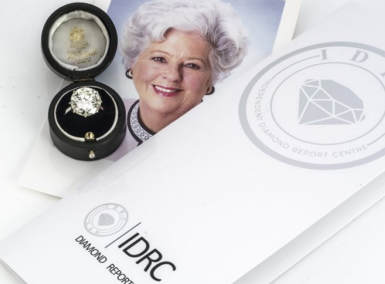There has been plenty of speculation in recent weeks as to when the Conservative government will call the next general election.
Under current rules the next general election this must take place by mid December, five years after the last time the nation went to the polls.
Prime Minister Rishi Sunak has suggested this is likely to take place in the second half of the year.
But whatever the date, charities are being urged to continue campaigning around political issues that benefit their mission and communities as long as they adhere to campaigning rules, overseen by the Charity Commission and Electoral Commission.
There are further challenges, as charity campaigning is set to take place amid an atmosphere of increasing hostility with culture war tactics increasingly used, especially by right wing politicians and the media.
Here we outline the laws charities need to adhere to ensure they can continue promoting their causes, even when the nation is preparing to vote. We also look at charities' latest attitudes to campaigning.
Charity Commission rules
The Charity Commission has assured charities of their right to campaign, including during elections, if it is to support their mission.
This is clarified in its latest campaigning and political activity guidance for charities guidance, known as CC9, as well as its 5-minute-guide to campaigning.
This outlines that charities must not support or oppose a political party or candidate, or donate funds to political parties.
Charities can invite candidates and party representatives to campaign events but the Charity Commission advises inviting representatives from “as wide a political spectrum as possible”.
Last year the regulator’s chairman Orlando Fraser reiterated in a speech that charities are “free to campaign robustly in furtherance of their purposes”.
https://www.charitytimes.com/ct/Trustees-face-robust-action-if-campaigning-fails-to-comply-with-law.php
However, the regulator “will be robust in holding to account any trustee” that fails “to comply with our guidance, or the law on which it is based”, he added.
Further advice was given last year to charities ahead of 2024’s general election. The Charity Commission’s social media guidance clarified that charity staff and leaders are free to express their political views, as long as it is via their personal social media accounts so that it is not interpreted as reflecting their charity’s views.
Electoral Commission rules
The activities of ‘non-party campaigners’, including charities, as well as unions, pressure groups and think tanks, are regulated by the Electoral Commission.
Through this regulation charities must notify and register with the Commission once they believe their campaigning spending will exceed £10,000.
At the end of 2023 a new code of conduct for non-party campaigners came into force. This updated code highlights that the law requires an imprint to be including on digital material that is part of regulated campaign activities.
This ‘digital imprint’ tells votes who is responsible for publishing and promoting campaign material and means that social media adverts and posts could require an imprint. The Electoral Commission has produced specific guidance on digital imprints.
Alongside the publication of this code the Charity Commission and Electoral Commission have published a blog post highlighting latest advice for charities on engaging in public debate. This offers further clarity on what campaign activity is regulated during election time.
This blog, with our Chair, John Pullinger, and @ChtyCommission Chair, Orlando Fraser, looks at how recent changes in the law around campaigning may affect charities: https://t.co/HDssadRh3z
— Electoral Commission (@ElectoralCommUK) December 1, 2023
Charities’ attitudes to campaigning
Charity trustees want their organisation’s leaders to take part in political discussions, according to a survey in 2023 by charity lobbying body Sheila McKechnie Foundation.
Around nine in ten trustees want to see charity chief executives engage in wider public discourse. Almost seven in ten also want to see charity leaders use their own experience of issues around equality, diversity and inclusion (EDI) in political debate.
But a fifth of trustees believe their charity is currently interpreting the boundaries of legitimate campaigning too narrowly. In addition, one in six trustees believe their charity is “too risk averse” in its campaigning amid political hostility.
One trustee told the Foundation “the risk of an ill-informed public and media backlash seems much higher than it used to be”.
Among high profile charities to be criticised by right wing politicians are the National Trust and RNLI.
The National Trust is respected in the UK and around the world. It doesn’t need anything knocking into it. Voting opens today for Council and AGM resolutions. It takes two minutes https://t.co/Xdkr2Py3SW pls share pic.twitter.com/FaNYsmffde
— Celia Richardson (@CeliaRichards0n) September 1, 2023
Another survey by the Foundation last year found that seven in ten charity campaigners believe politicians “have become more hostile to campaigning” over the previous 12 months. Three in ten say they have faced criticism or backlash from politicians over their campaigning.
Also last year the Third Sector Trends in England and Wales survey project, produced by Durham University and the Community Foundation Tyne &Wear and Northumberland, found that almost three quarters of charities “steer well clear of political issues” amid “political pressure at a national level on the way charities campaign or lobby”.
Small charities, those in rural areas and older organisations are among those less likely to take part in campaigning, compared to their larger urban and more recently formed counterparts, this research found. Also, four in five micro charities do not take part at all in political campaigning.
Clearly there is much work to be done within the sector to assure all charities of their right to campaign and for their leaders to express political views, as long as these opinions are used to support their organisation's mission.



.jpg)









Recent Stories